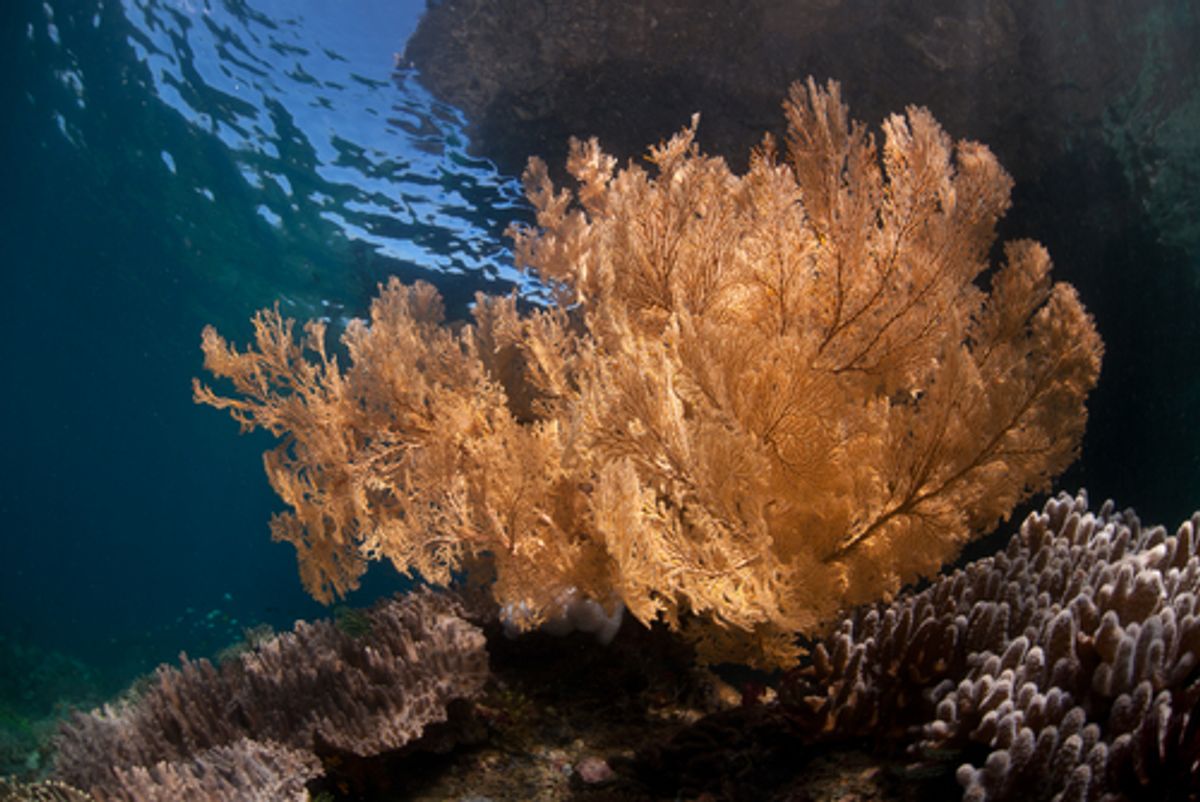It's been a busy weekend for the study of ocean acidification, bringing mostly bad news from an area we normally don't hear too much about at all.
First, a refresher from the National Oceanic and Atmospheric Administration:
Fundamental changes in seawater chemistry are occurring throughout the world's oceans. Since the beginning of the industrial revolution, the release of carbon dioxide (CO2) from humankind's industrial and agricultural activities has increased the amount of CO2 in the atmosphere. The ocean absorbs about a quarter of the CO2 we release into the atmosphere every year, so as atmospheric CO2 levels increase, so do the levels in the ocean. Initially, many scientists focused on the benefits of the ocean removing this greenhouse gas from the atmosphere. However, decades of ocean observations now show that there is also a downside — the CO2 absorbed by the ocean is changing the chemistry of the seawater...
That change is what's now called ocean acidification. Bryan Walsh at Time summarizes two new studies on the topic published in the journal Nature Climate Change. The first looks at the effects of rising acidity on different types of marine life, from coral to fish, and finds that they're all going to have a tough time adapting. Some species, like oysters and squids, are more likely to be directly affected, while the main problem for some fish will come if the coral reefs, which are most at risk, disappear. Down the line, it could mean big changes for seafood.
A second group of studies, published in the Philosophical Transactions of the Royal Society B, found mixed results for acidification's impact on marine ecosystems. At The New York Times' Dot Earth Blog, Andy Revkin finds the main takeaway to be only that there will be large changes. While some species will be worse off for acidification, the studies together show, others will thrive in the new oceanic environment.
Back above the surface, a second study identified a worrisome feedback loop going on. Walsh explains:
...the researchers found that as the pH of the oceans dropped, it would result in lower concentrations of the biogenic sulfur compound dimethylsulphide (DMS). Why does that matter? Marine emissions of DMS are the largest natural source of atmospheric sulfur. (Manmade sources of sulfur include the burning of coal.)
Sulfur, in the form of sulfur dioxide, isn’t a greenhouse gas. But higher levels of sulfur in the atmosphere can reduce the amount of solar energy reaching the Earth’s surface, causing a cooling effect. (In the aftermath of the eruption of Mt. Pinatubo in the Philippines in 1991, which threw millions of tons of sulfur dioxide into the atmosphere, average global temperatures the two years fell by about 0.5 C.) If acidification decreases marine emissions of sulfur, it could cause an increase in the amount of solar energy reaching the Earth’s surface, speeding up warming—which is exactly what the Nature Climate Change study predicts.
Put together, it all suggests that what's happening beneath the waves may not be able to escape our attention for much longer.

Shares